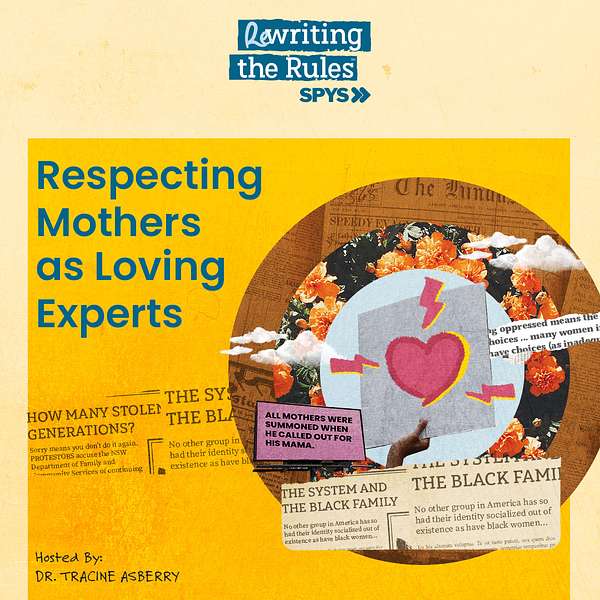
Rewriting the Rules®
Rewriting the Rules® interviews community and business leaders, youth champions, and other radicals whose work builds on the power and genius fundamental to Black communities, Indigenous Communities, and Communities of color. We shine a light on the legacies of creativity, strength and innovation sustaining these communities and offer practical tools for building smart, fair, and loving communities. The podcast is hosted by Dr. Tracine Asberry, Executive Director of St. Paul Youth Services, a Minnesota US based non-profit that is a leader in reimagining how our community engages with and holds itself accountable for Black youth. Learn more at www.spys.org
Rewriting the Rules®
Respecting Mothers as Loving Experts - Part 3 of 3
Respecting Mothers as Loving Experts - Part 3 of 3 is part of our Women’s History Month series. In this special three-part episode, we are honored to share the wisdom, discernment, and intuition of eight mothers who are experts at living. In Part 3, we speak with Ajibike “BiKé” Ojomo, Michelle Dennard and Portia Jackson. In their own words, we hear from these Black mothers as they explore their hopes for their children (and grandchildren) and how structures of racism, classism, and sexism both challenge and disrupt their work as Loving Experts in their children’s lives.
You can find parts 1 & 2 of these inspiring and nourishing conversations in our podcast feed, featuring:
- Part 1: Interview with Julia Freeman, Nyia Harris, and Chakita “Kita” Lewis
- Part 2: Interview with Jill Greendeer and Eboun Wilbourn
You can find all our reading links and recommendations from the mothers featured here on our podcast page: www.spys.org/podcast
*We use the term “Indigenous” as adapted from the NDN Collective: “peoples as ethnic communities whose direct ancestral lineage descends from the earliest, original inhabitants of a given region, in contrast to groups that have settled, occupied, and/or colonized the region more recently. The land on which we live and the natural resources on which we depend are inextricably linked to our identities, cultures, livelihoods, as well as our physical and spiritual well-being. The total estimated population of Indigenous peoples is approximately 370 million people worldwide (5% of the global population). We use Indigenous peoples with an “s” to recognize the diversity of individuals and groups that identify with the term, which has been distilled to a singular noun throughout history in an attempt to group our people together rather than recognize our differences and diversity. This is consistent with the UN Declaration on The Rights of Indigenous peoples. (Source: North East Farmers Network)
*The music you hear on the podcast is provided by Blue Dot Sessions and is used here under a Creative Commons License.